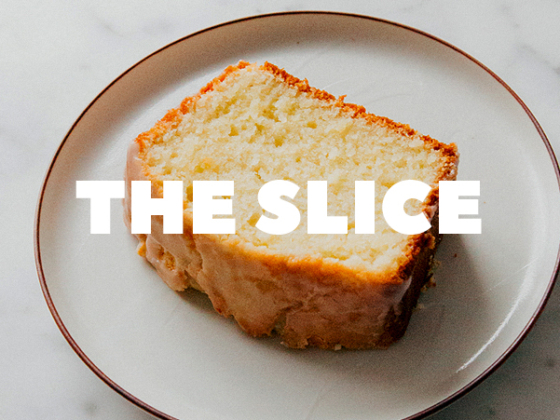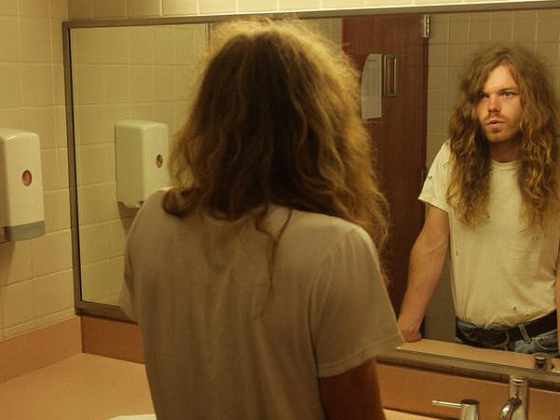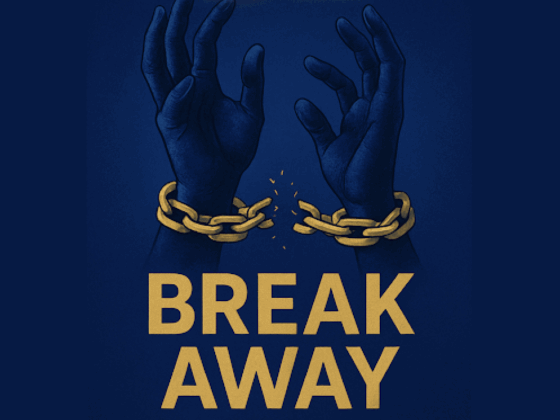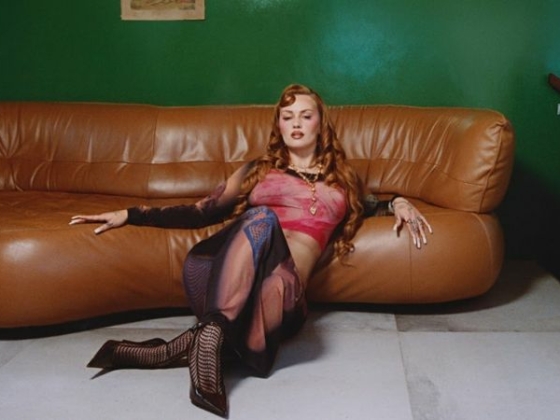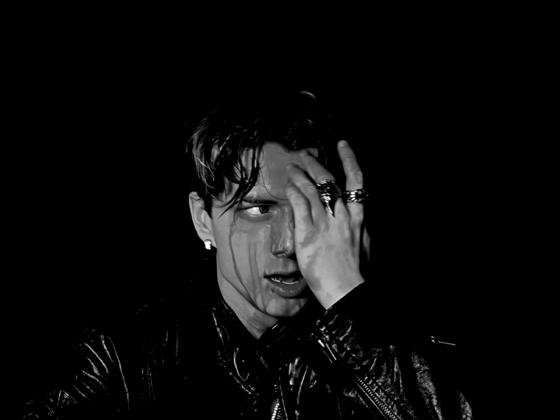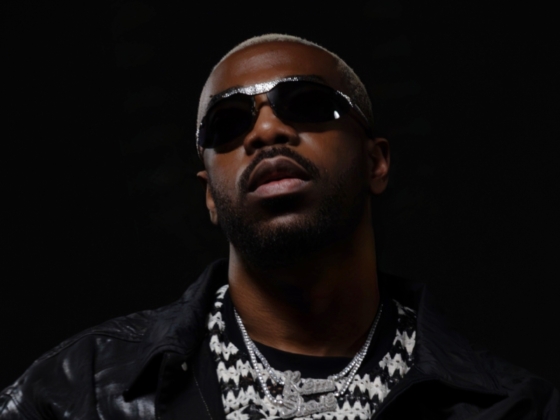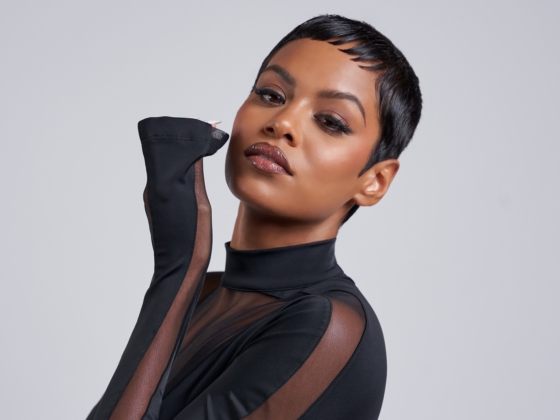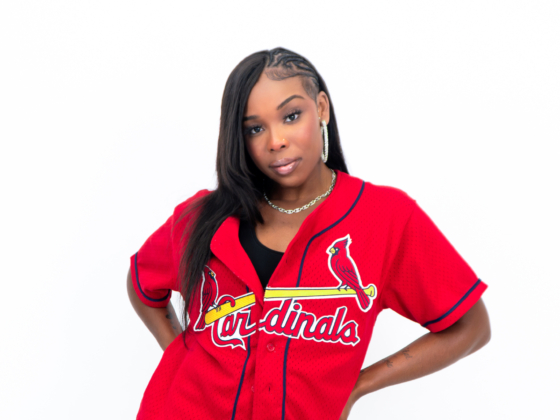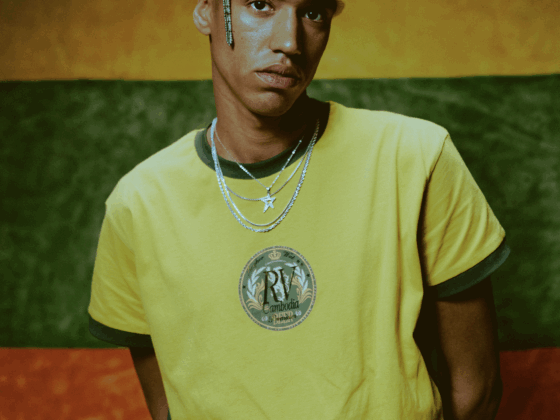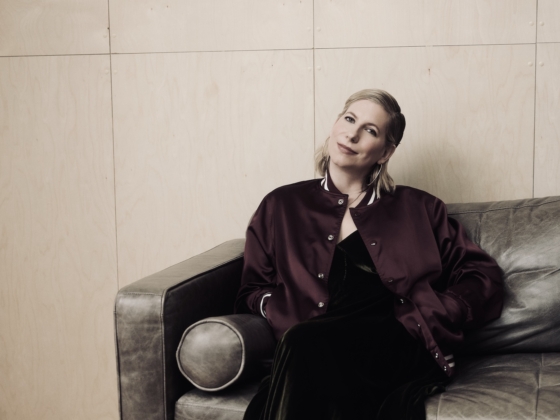College is stressful. You’ve got mountains of homework, the daunting task of showing up to class, tests, and papers that pile up and that’s just on the scholastic side. On top of all that you have extracurricular activities like athletics, partying and even buying and cooking food. Managing that lifestyle while getting good grades is a fulltime job. Trying to do anything aside from that is practically suicide, and yet, some people make it happen.
You know what else is stressful? Crafting a debut album. At only ten tracks, ODIE's Analogue is a consumable escape into the mind of a rising talent. At times it’s lush and glowing, at others it’s desolate and ridden with anxiety. But regardless of the emotion seeping out of your speakers, Analogue remains true to itself and true to the artist that created it.
So how is it that ODIE put together a debut project as well crafted and beautifully delivered as Analogue while attending UCSD? Inquiring minds wanted to know, so we at EARMILK did what any good publication would do, we called him up and asked.
Lightly edited for clarity.
——-
EARMILK: How're you feeling man? Today's got to be a big day for you with the release of your debut album.
ODIE: Ya, everything's happening hella fast, but I'm relieved. We put a lot of time in putting the music out there so now we just have to see what the reaction is, so I'm chillin.
EM: So what did you do today? You just dropped your debut. What'd you do all day?
O: I woke up. I put on my favorite pair of pajamas and then I went to Apple to speak with the people at Apple Music. I went to meet with them and had a good meeting. And then just went around LA, had a good lunch. I was just chilling. Smoked some weed. But yea, I've literally just been chilling, watching the reaction, and taking it all in. It's been cool. It's been a nice relaxing day. The feeling is wild.
EM: Why the title Analogue?
O: The reason I wanted to call it Analogue is it's going to be a series of three projects. But I felt like this is the first time I've ever put anything out wholeheartedly as an artist. I released a couple of songs earlier, like in 2015, but I felt like this was the rawest form of me. We sat in our room and made all this music over the past few years by ourselves. We did everything ourselves; it was really natural. We learned everything about the process. It was just me, Yacob and Chris, my manager. We sat, hunkered down in our room and everything came naturally. The way the project was made was raw and analog.
That was the big reason why I wanted to call it Analogue. The process of making it felt timeless and nostalgic for me. But also, in general, I think the music in the space that it was in was natural and pure but still innovative at the same time. And then, ya, I see myself as an analog artist. I look up to a lot of artists in the 70s and 80s and the way that they shared their art and the time and passion they put into it. So I wanted to call it Analogue because of that. The whole process was very early and very raw. At some point in my career as an artist, I'm going to be able to look back and see the first steps of me as an artist even if it's older material.
EM: It's impressive to hear a young artist like yourself put in effort with a debut album like this. And going off of that, how does it feel to be coming from that "analog" background when in 2018, digital is such a dominant force in the music industry?
O: Honestly, I feel fresh. The fact that we're able to live in this age where information and anything is accessible whenever you want, I think that's great. In regards to the ways people use social media, it's really in your face. Of course, that's something I'm able to benefit from as well. But I feel like, for me, I love the fact you have access to everything and the fact that people are sharing it like crazy. But, it's still necessary to have that quality of artistry where people take their time and are available to develop great works of art. Whether that takes a long or a little time doesn't matter, I think it's allowing art to happen naturally. That's what I'm really big on. And now that things are digital and that we live in a digital age, things are manufactured, but I think it's still relevant and even purer that you can still sit down and make something natural.
EM: I'd agree. I think the artists that take that time and make something a bit more natural do better to connect with their audiences.
O: And I think it's sort of a balance as well. There's a bunch of artists out there that are doing their thing and tweeting every day or putting out content every day, and they all do some crazy shit. And that's great as well. But I think there are different spaces for different people. It's like a spectrum.
EM: Going back to your past a little and that "analog" idea, how did you get into making music? What was the path that led to this album?
O: A lot of the ways I got into music I can't even track. I couldn't even tell you. I think the way I was born; it was somewhat embedded in me, which is weird [laughs]. Before I even started to consciously think about writing a song or making music, I was naturally always doing it. I started playing piano as a kid but hated the structure. And as a kid, I was creating sounds and soundscape in my head, but I never got to a studio to record them or put them on paper. And then in high school, I had a friend who had a studio, and he invited me over to make a song. So we wrote a song and then after that, I got addicted. I was always addicted to listening to music before, just as a fan but once I realized I could do it, I got addicted.
I'm Nigerian, and music is a huge part of our culture. My parents were super religious so gospel music, especially African gospel, is embedded in your blood. You have to sing; you have to dance. So I guess the energy of music was naturally in me. And once I realized I could use it to express myself, I got addicted.
EM: I hear you're currently at UCSD. I've interviewed a handful of artists here and there, but it's rare to meet somebody who dropped their debut while attending college. College is a pain in the ass. What's it like being a musician and in college and juggling all of that?
O: It sucks [laughs]. School isn't fun but you know I have to do what I have to do. But you know what, it's cool. I'm still living a regular life. I go to school with people who don't know who I am, so that's cool. It's very interesting, and it's not as hard as I would think to balance. I'm the biggest procrastinator so half the time I'm not even doing something. It's not as hard as I imagined. If you want to do something you have to do what you have to do to get it done. I'm experiencing college and learning a ton. The classes I'm taking are great. At the end of the day though, school is school.
EM: Certainly. Mad respect. Making an album is a full-time job as is going to school. And UCSD is no joke too.
O: I finesse my way through school. I spend most of my time on music.
EM: I found your music through a song called, "Little Lies." It stuck with me because the subject matter was fascinating. You're questioning everything that most people believe in. Where did that come from and what was the process of making that song?
O: Honestly, that was the fastest song we made on the project. We made that song in literally 30 minutes. My friend is a guitarist, we worked together on "North Face" and "Little Lies," his name is Alex. He came through, he already had the cords, so we just organized them and made it happen. We made a recording booth in my closest, so I just went in and freestyled it, and it was super random [laughs]. In regards to the process, it was natural. Everything was super tranquil. It was sunny out; we had just smoked. The whole atmosphere was perfect for it. The song in general though, I don't know it's just the space I was in. I think everybody questions everything at some point. I question what's real, what's not real. I question myself, what my purpose is, things like that. Sometimes it's a scary question; sometimes it's a very light question. So I just wanted to represent that in both spaces. The first part is very tranquil and smooth and the second part sees reality punching you in the face. But you're still going through it and experiencing everything.
That was my life for the past two years, living in the moment and feeling things but not necessarily knowing what they are. And from questioning things, I realized how much the question doesn't matter, and I should do what I want to do. So I think that was the whole point of the song. I think that's a question a lot of people ask themselves before they're about to do something crazy or understand themselves. So I wanted to portray that in the song. That was the headspace I was in, and it came out as one of my favorites off the project.
EM: It's one of mine as well. And going off of that, I thought it was interesting that "Little Lies" was the first song of your rebranded effort. You had a few songs here and there from the past, but that was the first one as the new ODIE. What made you decide to put that out as the single?
O: We made that song a year ago, actually. We chose it first, though, because I had never really put out a song like that. There's always been this level and quality of music I've wanted to attain, and I feel like when I made that song, I had reached that level. I wanted to give people something that they hadn't heard from me, and at the same time, I was so proud of that song. That was legit the only song on the album that I'd listen to and think, 'damn, this is so good.' Every time. It was so different from me and relevant to how I felt. It's the whole space of the whole project, finding yourself and questioning everything and then realizing, fuck it do whatever you want to do. So I wanted to put it out so that people would know the scope of what you're going to get when you get the project.
EM: Going off of that, talk to me about the process of recording and dropping your debut. That's got to be a lot of pressure and anxiety. What was that like?
O: A lot of times, it was really scary. There were days I'd sit in my room in the dark and think, 'damn, everything I'm making is terrible. What am I doing? I have no idea what the fuck I'm doing.' Especially since we did it all ourselves. We would make 30 masters or mixes for one song and then not touch it for a year. And then we'd come back to it like 'oh damn this is amazing.' Honestly, I see this much more like a project rather than an album. As an artist, this is the first time I've ever put together a bundle of songs with a concept. Over the process of making it, I realized the fastest and best way to do something is just to understand that everything is a process. You're always going to grow and be better the next day. So when we were making the music, I realized you have to settle at some point and put it out. That's the biggest thing I learned. And it's not just a matter of settling, but making sure that every time you do something that it was pure. There are songs on there that I hated. But you have to be comfortable putting things out and be confident in your work. Especially as a new artist. I wanted to make sure everything was perfect. I'm the biggest perfectionist when it comes to shit like that. But I learned, that as long as I tried the best I could, there's always room for growth, and that's part of the story. It was a long process, but I'm happy it went the way it did. I'm relieved that people can hear it and now I can build upon it. I'm working on the visual components so there's going to be a lot of stuff this year.
EM: I was going to say this at the end but since you brought it up, what's the rest of 2018 look like for ODIE?
O: Yea, this is only the beginning. We've been working on four videos for this project. One is coming out the end of this month. I've been working on a couple of short films. This is the year I'm finally going to express myself and show what we've been working on creatively. I'm really big on trying to create a world that's in my head and transporting it to real life to show people. But I don't want to stop with music. I want to make sure the visuals communicate that world as well. I'm going to be going to Europe this summer. I want to set up a tour. The ideas I have for our shows are crazy. I feel like the spectrum of emotions that the album portrays is crazy. I feel like people who come will want to cry, or riot or whatever. So I'm juiced. It's the first time I've been able to express myself, and it's going to be through a lot of content. This is only the beginning of Analogue.
EM: Definitely stoked for a tour. I know you've been on tour with Amine, so it's good to hear you'll be back. I'm up in LA man; you guys got to come out here.
O: Will do! I'm working on coming out there. Should be very soon.
EM: Hell yea. Talk to me a bit about your influences. I feel like it's a generic question, but it's a good one for someone like you with so much range. I'm getting sounds of Kid Cudi all the way to afrobeat and some dystopian shit. Where does all that come from?
O: In an African household, you can't not listen to Fela and a bunch of African music, especially at Church, so that was all embedded in me. And even when I try to distance myself from that sound, it always comes back. It's funny, the first time I ever sang somebody said, 'you have an African accent when you sing.' So yea, that's definitely there.
Kid Cudi though, he means a lot to me. He turned hip-hop over and broke the idea of what a box is and what black artists can do vocally and the type of music they create. That was huge to me. The way that he could make hit songs that had to do with figuring yourself out as a person resonated with me so much and that's my biggest inspiration. Also, Coldplay is my favorite band of all time. If I could write a song with Chris Martin, that would be my dream. That's my goal. The way they're able to create an atmosphere. When I listen to their music, I feel like I'm floating. It's crazy to me. That's what I wanted to do with "Little Lies," and that's what I want to do with the whole project in my head. I love the space that they create with their music.
EM: Well I think you did a great job on your project, man. My personal favorite off the album is "Faith," and I'd love to get some more background on it. It starts out with such a desolate and barren intro and then it explodes into this lush sound. Where did all that come from?
O: Honestly, I think it's one of those moments where everything around feels so dead or like you said, desolate. But still, you have this glimpse of hope, and nobody can take it from you. One day I came back from school and just started messing around with the keys and made that drum pattern. Once we had that, I kept harnessing that energy and that African in me and put it into the song. That was another song that we made quickly; I think we did it in two hours. The chorus came so naturally. That, I would say, is my Nigerian roots coming out of me. It was just space where I feel like nobody can stop me. There are days where I feel like nobody can tell me 'No' and that's where I was for that song. Like, the only person that can stop me is myself. Making every song was so natural for me. Every time I recorded or made the beats I felt that entire emotion that the listener feels in the song. And that's why I felt like the whole creation of the project was great for me. I just walked into the studio and felt a certain way, and it came out in the music. But yea, "Faith" is one of my favorite songs, it has crazy energy. And live, that's songs going to be amazing live.
EM: Is there anything else you'd like to add?
O: Nah, man. It was just the three of working in the room, and we let everything come naturally and expressed ourselves to the fullest of our ability. And that process of growth and learning created the project. That's pretty much it.
Connect with Odie: SoundCloud | Instagram | Twitter


